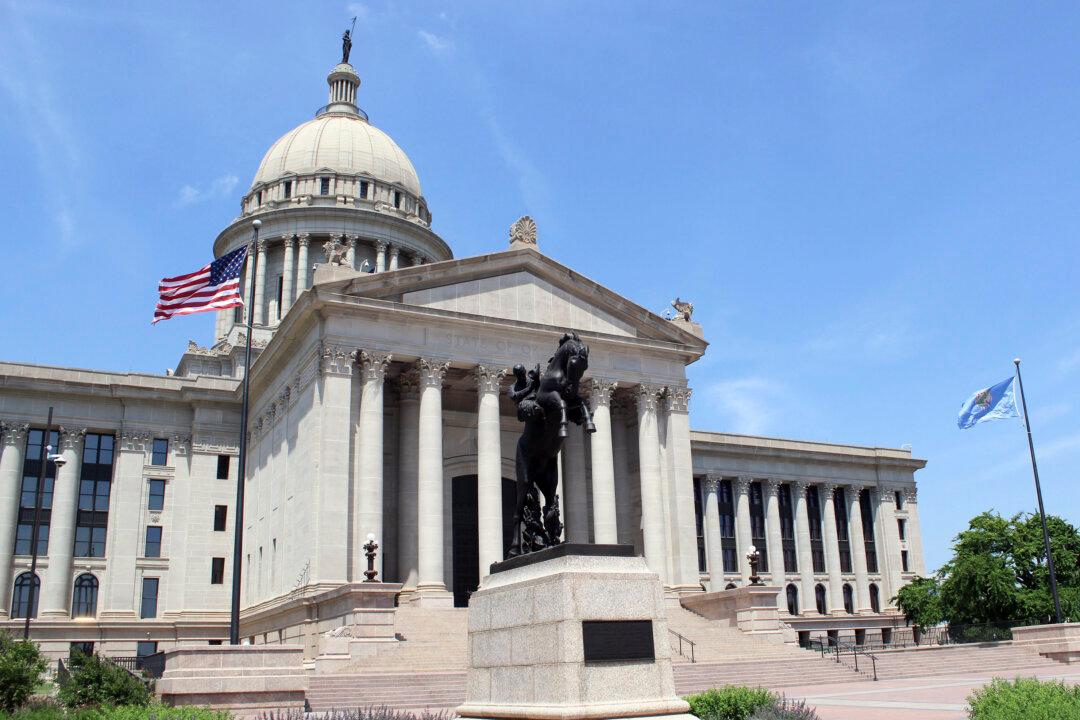Oklahoma Attorney General Gentner Drummond took his argument against publicly funding religious charter schools before the Oklahoma State Supreme Court in the state capitol in Oklahoma City on April 2.
On Oct. 20, 2023, Mr. Drummond, a Republican, sued the Statewide Virtual Charter School Board (SVCSB) after it voted 3–2 in June 2023 to approve a charter for the St. Isidore of Seville Virtual Charter School. The school, sponsored by the Catholic Archdiocese of Oklahoma City, will be “Catholic in teaching, Catholic in employment, and Catholic in every way,” according to its charter application.





